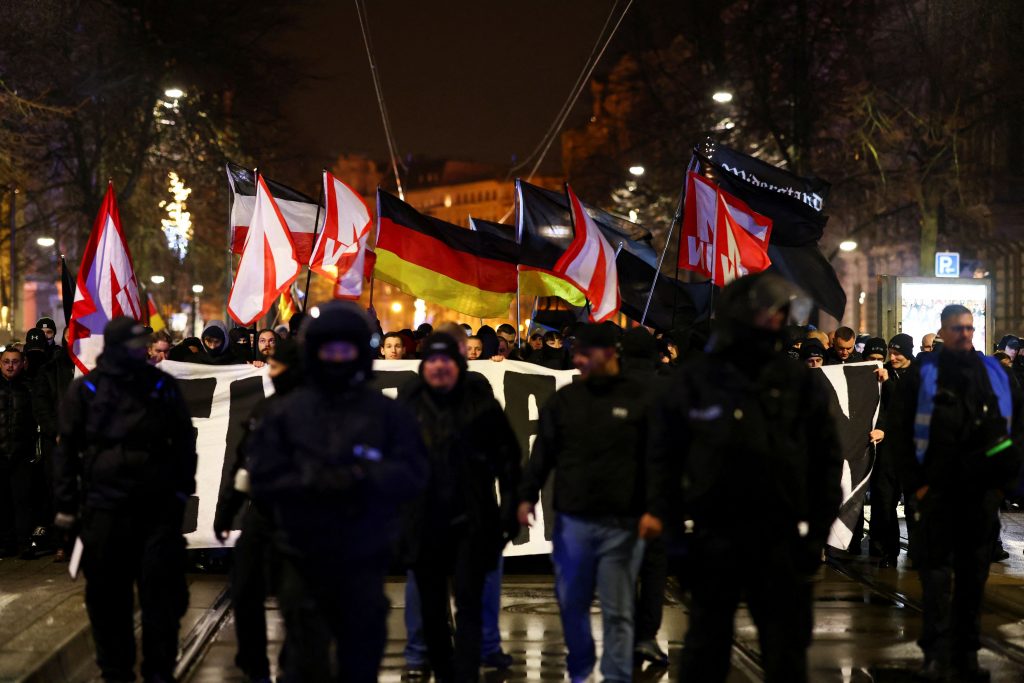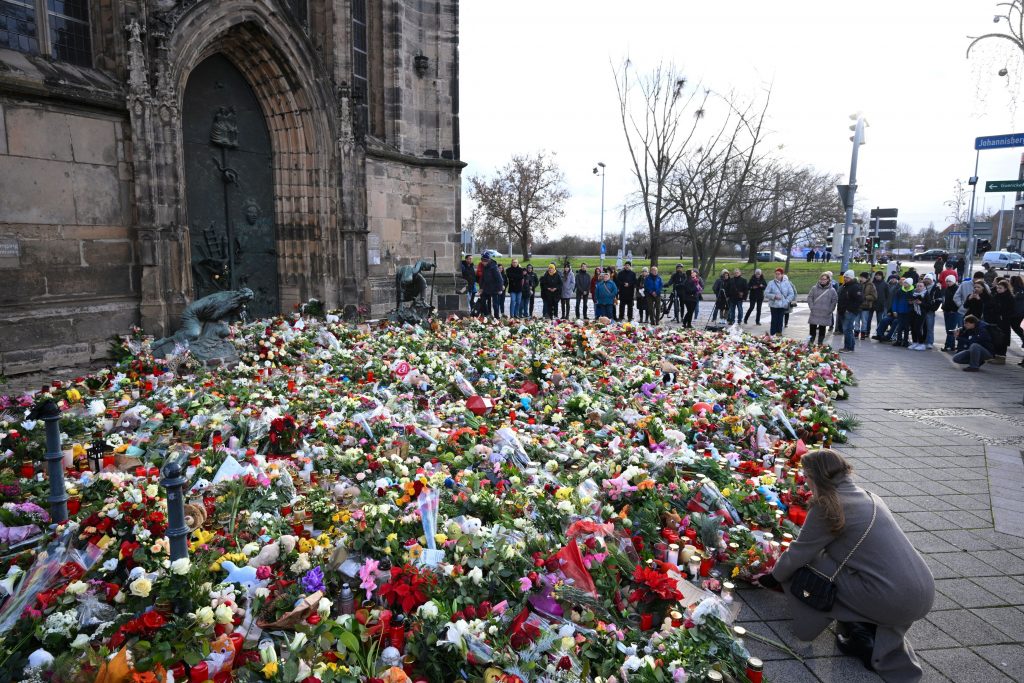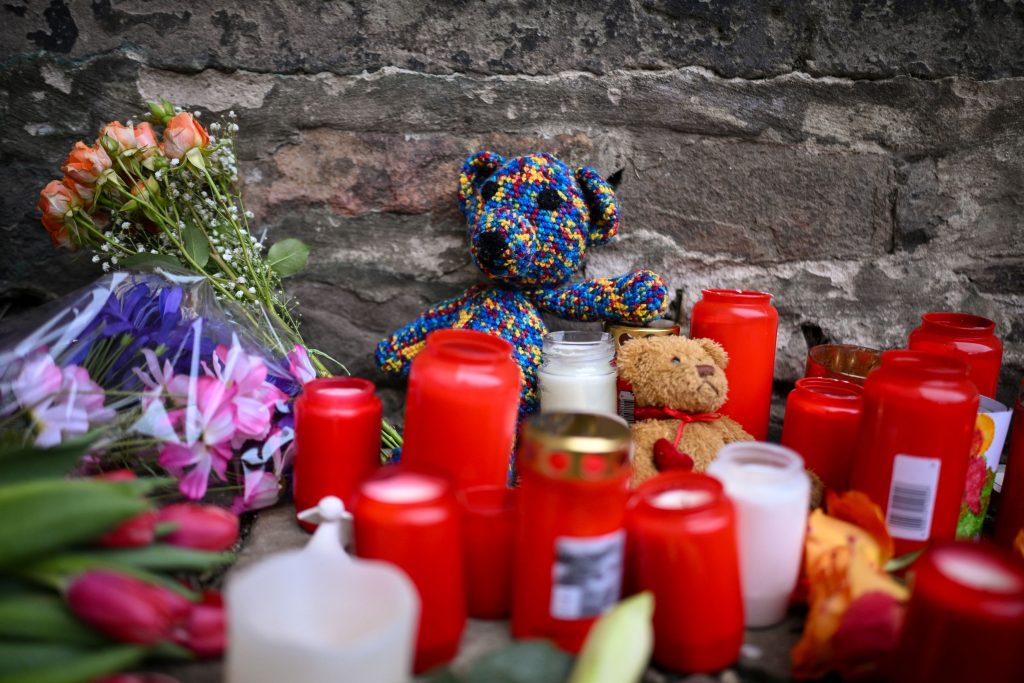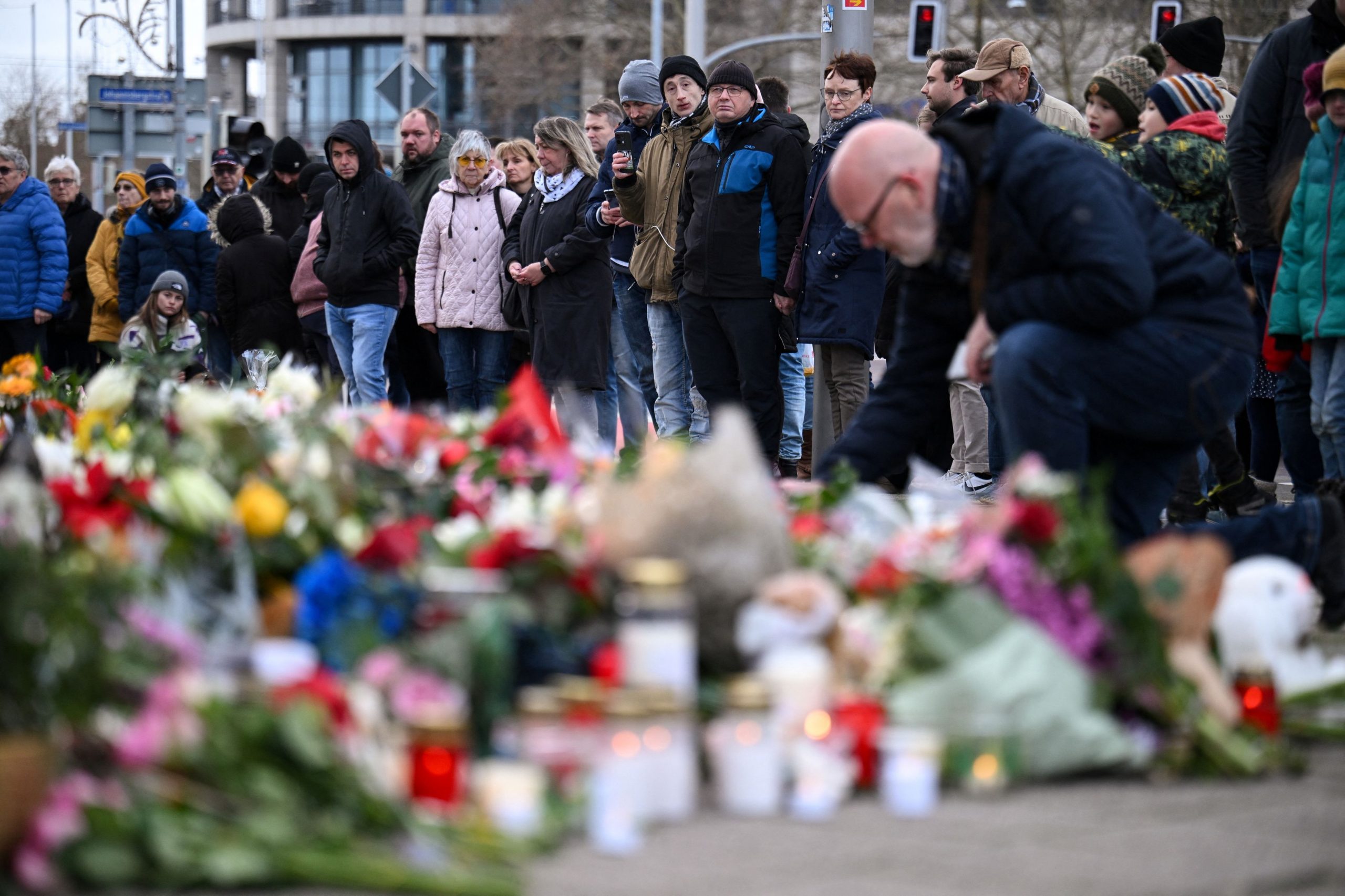When a driver rammed a car through a festive Christmas market in the German city of Magdeburg shortly after 7 p.m. on Friday, leaving five dead and more than 200 wounded, the country seemed to be facing a repeat of its worst Islamist terrorist attack in recent history.
Yet the suspect’s profile that began to emerge hours after the drama painted a surprising portrait—that of a Saudi exile and vocal anti-Islam activist—leaving a perplexed Germany unsure about what lessons should be drawn from the drama.
The attack had come just a day after a Christian service in Berlin commemorating the victims of an Islamist attack on Dec. 19, 2016, when a Tunisian man who had pledged allegiance to Islamic State had driven a truck through a Christmas market in the capital, leaving 13 dead.
Earlier this year, four people were killed in two Islamist attacks , which have become more frequent in the past decade in Germany. Security services specifically warned of a very high threat from Islamic assaults on Christmas markets in the run-up to the festive season.
Hours after the attack, authorities said the suspect, detained by police on the spot, was a 50-year-old Saudi national who had been in the country since 2006 and was working as a psychiatrist in Bernburg, just south of Magdeburg, the capital of the eastern German state of Saxony-Anhalt.
The man’s nationality, age and profession were a poor match for the profile of suspected Islamist attackers in the country in recent years, who were mostly young, recent arrivals from countries such as Syria and Afghanistan, some of them with a history of petty crime. Anis Amri, the 2016 attacker who was killed by Italian police while on the run, was a drug dealer who attended a radical mosque in Berlin that was under observation by security agencies.
“At this stage, it looks like the background for the act could be some dissatisfaction with the treatment of Saudi refugees in Germany,” said Horst Walter Nopens, chief prosecutor in Magdeburg.
The suspect was being questioned by investigators and had made a statement about his motives that still needs to be fully assessed, Nopens added. The man faced a possible indictment for multiple murders and attempted murders, he said, adding that prosecutors had yet to determine whether to treat the act as a terror attack.
“We must fully understand the perpetrator, his actions and motives, and then respond with the necessary legal and other consequences,” Chancellor Olaf Scholz told journalists after touring the site of the attack. He said he expected the death toll to rise in the coming days given the number of wounded.
Taleb Al Abdulmohsen, the suspect, had fled Saudi Arabia because he rejected Islam, a crime in the Middle-Eastern kingdom, which enforces a strict version of Islamic law, a security official said.
Born in a minority Shia village in the majority Sunni country, Abdulmohsen was known beyond the small Saudi community in Germany as a vocal anti-Islam activist and campaigner for women’s rights. His profile on social-media platform X had more than 43,000 followers before the attack.
He ran a website, wearesaudis.net, offering advice for Saudi and other prospective asylum seekers, especially those who wished to distance themselves from Islam, explaining how to navigate Western asylum systems.
“I’m the most aggressive critic of Islam in history. If you don’t believe me, ask the Arabs,” he said in a lengthy 2019 interview with the conservative Frankfurter Allgemeine Zeitung daily.
That year, he told the Jerusalem Post he spent 10 to 16 hours a day helping people in the Middle East who had renounced Islam find asylum in the West.
The suspected attacker was an avid social-media poster, retweeting anti-Islam comments by Arab activists and far-right supporters in Europe and the U.S. He slammed Germany’s hate speech laws, which ban incitement against certain religious or ethnic groups. In August, he made and posted an artificial-intelligence-generated video of Elon Musk criticizing the legislation for stifling free speech.

Far-right demonstrators take part in a protest after a car drove into a crowd at a Christmas market, in Magdeburg, Germany December 21, 2024. REUTERS/Christian Mang
His X profile shows that around the time of the attack in Magdeburg, Abdulmohsen reposted that and other self-made videos and audio recordings in which he claimed that he was being censored and persecuted by Germany, which he said had committed “deliberate crimes” against Saudi refugees like himself. He claimed that German police enforcing “socialist laws” had sent a “man with a knife” to steal data from his home, and said Berlin was responsible for the death of Socrates, the ancient Greek philosopher.
Some of his earlier comments were supportive of the anti-immigration AfD party , and he weighed in on U.S. politics, too, criticizing Democrats for allegedly rejecting America’s Christian heritage. The banner of his X profile showed an automatic weapon emblazoned with a U.S. flag.
“After 25 years in this ‘business’, you’d think nothing would surprise you,” Peter Neumann, a lecturer at King’s College London and a terror expert, wrote on X. “A 50-year old Saudi ex-Muslim who lives in eastern Germany, loves the AfD and wants to punish Germany for its tolerance towards Islamists—I really didn’t have that on my radar.”
In recent months, Abdulmohsen appeared to become increasingly outraged and focused on what he described as his persecution by German authorities. Abdulmohsen claimed in posts that Berlin was pursuing a policy of “Islamization.”

People stand next to flowers and candles left as a tribute near the ‘Alter Markt’ Christmas market, where a man drove a car into the crowd through an emergency exit route on Friday evening, in Magdeburg, Germany December 22, 2024. REUTERS/Annegret Hilse
His X profile proclaimed “Germany chases female Saudi asylum seekers, inside and outside Germany, to destroy their lives.” And on his website, he called on women not to apply for asylum in Germany because Berlin authorities were bent on turning Germany into an Islamic country—a known far-right conspiracy. Several German rights activists posted on X that they had blocked or were ignoring him after he became increasingly erratic in his comments and messages.
The Saudi government warned Germany about the suspect four times between November 2023 and September 2024, according to German security and government officials. Saudi authorities claimed he was dangerous and a possible threat to Saudi diplomats.
Germany dismissed the warning, the officials said, because authorities thought the Saudis were targeting a dissident who claimed to have abandoned Islam, an act known as apostasy that is in theory punishable by death under the kingdom’s legal system.

Soft toys lie among candles and floral tributes near the ‘Alter Markt’ Christmas market, where a man drove a car into the crowd through an emergency exit route on Friday evening, in Magdeburg, Germany December 22, 2024. REUTERS/Annegret Hilse
Police had received a complaint about the man about a year ago and considered interviewing him, but hadn’t done so, Tom-Oliver Langhans, head of the Magdeburg police, told journalists on Saturday.
“Everything we have in our police files (on the suspect) is now part of the investigation,” said Langhans, but added that the suspect hadn’t been under observation by security agencies as a possible attacker.
Friday’s attack marked a big setback for security agencies in Germany—one of the most lethal mass attacks since a far-right activist shot nine dead in the German city of Hanau in 2020.
The suspect’s atypical profile could explain why authorities didn’t have him in their sights despite repeatedly warning about a high danger of Islamist attacks this year.
Four days before Christmas, authorities across the country on Saturday ordered security reinforced around Christmas markets throughout the country and some markets were closed.
Write to Bertrand Benoit at bertrand.benoit@wsj.com and Bojan Pancevski at bojan.pancevski@wsj.com



